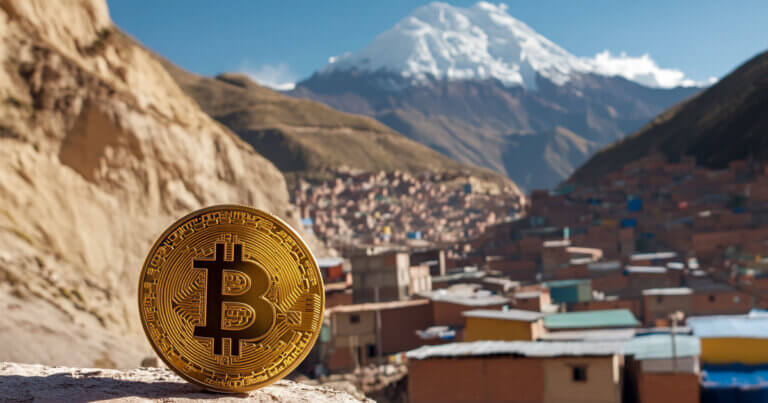 Bolivian crypto transactions soar after lifting Bitcoin ban
Bolivian crypto transactions soar after lifting Bitcoin ban Bolivian crypto transactions soar after lifting Bitcoin ban
Bolivia’s crypto regulations lead to a 141% increase in virtual asset transactions, fostering economic modernization.

Cover art/illustration via CryptoSlate. Image includes combined content which may include AI-generated content.
According to a report from the Central Bank of Bolivia (BCB), virtual asset transactions in Bolivia more than doubled in the last three months after the country lifted its ban on Bitcoin in June.
Between July and September, the average monthly trade volume soared to $15.6 million, compared to $7.6 million in the first half of the year. This sharp rise brought the total transaction value for the quarter to $46.8 million, surpassing the previous six months.
The surge followed the enactment of Resolution 082/2024 on June 25, which enabled the use of electronic payment methods for buying and selling virtual assets, with stablecoins accounting for most of the transactions.
BCB acting president Edwin Rojas said during a press briefing:
“The BCB is leading the way in crypto asset adoption in Bolivia. We are making rapid progress toward an economy that embraces digital financial tools.”
The number of virtual asset transactions also jumped 141%, increasing from 932,000 to 1,123,000 over the same period. This growth reflected broader acceptance of virtual assets across both financial institutions and individual users.
BCB officials worked closely with the Financial System Supervisory Authority (ASFI) and the Financial Investigations Unit to implement the regulation, aligning with guidelines from the Latin American Financial Action Task Force (GAFILAT).
Six financial intermediaries began processing virtual asset transactions through electronic payment methods after the resolution’s introduction, with individuals conducting the majority of these trades.
Rojas Ulo:
“The shift toward virtual assets represents a key step in modernizing Bolivia’s economy and integrating it with global markets. This regulation gives our citizens an alternative way to handle cross-border transfers and electronic payments.”
Since implementing the regulation, the BCB has incorporated virtual assets into its 2024 Economic and Financial Education Program, conducting 33 nationwide workshops. More than 3,000 people participated in sessions that aimed to improve the public’s understanding of virtual assets, their operation, and the associated risks.
The BCB reaffirmed its commitment to fostering economic stability and development through these initiatives.



 CryptoQuant
CryptoQuant 








































































